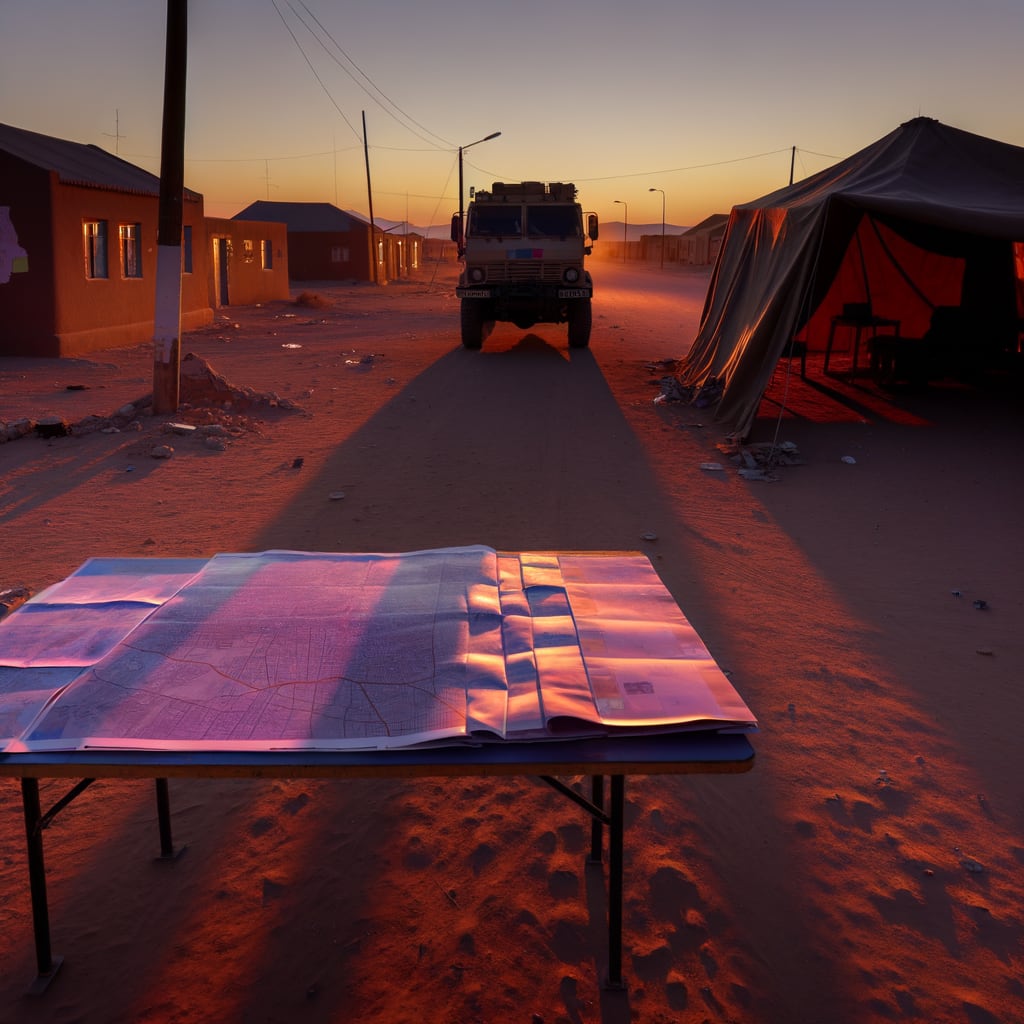Sudan's El Fasher Falls to Rapid Support Forces Amid Reports of Mass Atrocities
In a major shift in control, Sudan's military has confirmed its withdrawal from El Fasher, the regional capital of North Darfur, leaving the city in the hands of the paramilitary Rapid Support Forces (RSF). The transition of power follows heightened violence, with reports of mass atrocities, widespread civilian casualties, and deliberate targeting of populated areas.
The Conflict in El Fasher
El Fasher has been under siege for the past 18 months, resulting in a massive humanitarian crisis. The RSF took control of the city on Sunday, ending the siege but sparking further violence. The RSF is also reported to have seized the army headquarters in el-Fasher, and the 6th Infantry Division, a key base of the Sudanese Armed Forces (SAF) in western Sudan.
The Darfur Network for Human Rights (DNHR) has reported an escalation in hostilities and expressed grave concern over the ongoing violence. The city and its surroundings, once bustling with life, have been trapped under a tightening RSF siege where disease, malnutrition, and daily violence claim innocent lives.
Widespread Atrocities and Civilian Casualties
The RSF, since seizing control of El Fasher, is believed to have killed tens of thousands of people in a two-day window. This analysis is supported by a report from Sky News, which suggests a high civilian death toll. Satellite imagery published by Yale University's Humanitarian Research Lab (HRL) showing ground discoloration consistent with blood lends further credence to these reports. New videos reviewed by BBC Verify show RSF troops executing unarmed people post the city's capture.
In a horrific incident, RSF fighters were reported to have conducted an execution in El Fasher's Saudi Hospital, leaving around 460 people dead, according to UN News. The UN Security Council has held an emergency session in response to these atrocities and has called for an immediate ceasefire.
Global Reaction and Calls for Humanitarian Access
The escalating violence has sparked worldwide alarm, with calls for renewed talks to halt the war in Sudan. The UN Secretary-General has expressed grave concern over the developments in El Fasher and has called for an end to the siege. The Sudan Media Forum (SMF) coalition has also condemned the violence committed by RSF and demanded immediate humanitarian access.
The Committee to Protect Journalists has raised alarms over the violence and impunity faced by journalists and media workers in El Fasher. It has called for their protection and the immediate release of those abducted.
Current Status and Future Implications
As of now, the RSF maintains control over El Fasher, with hundreds of thousands of civilians reportedly trapped in the city. There are reports of continued mass killings, and a humanitarian crisis looms large, with civilians devoid of access to food, healthcare, or safety.
The fall of El Fasher to the RSF could be a game-changer in Sudan's war, and the international community is closely monitoring the situation. Moreover, revelations about the RSF using British military equipment have increased scrutiny of the UK's role in the conflict. As the situation unfolds, the world waits to see if global pressure can bring an end to the violence and provide much-needed relief to the beleaguered people of El Fasher.

